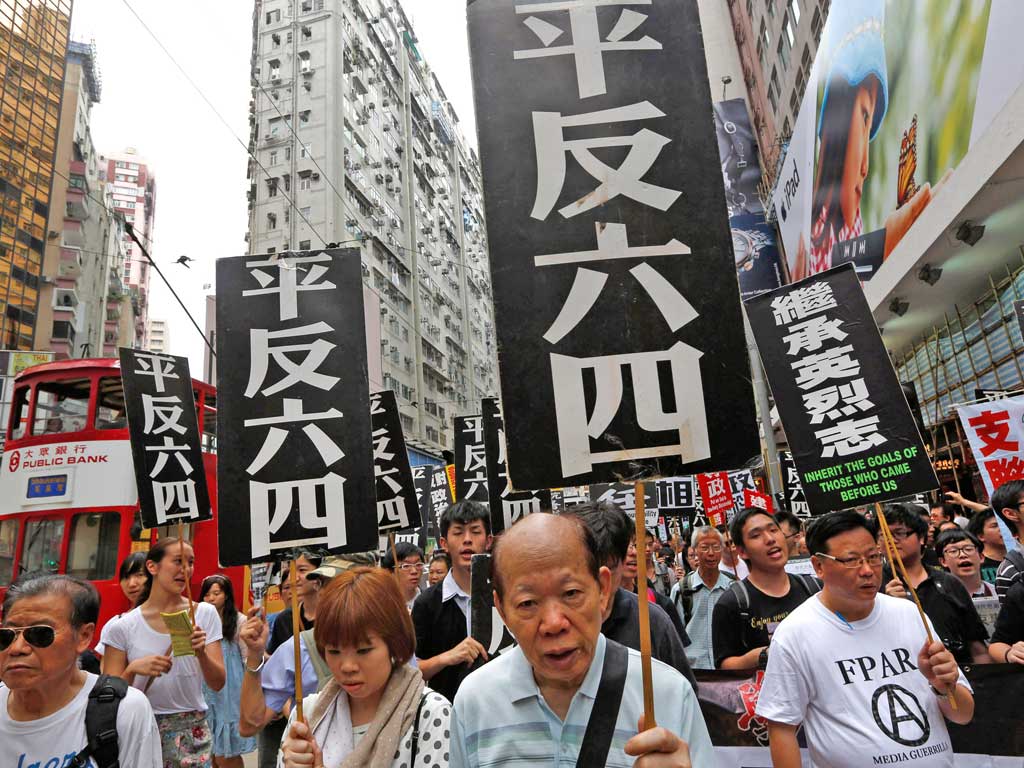Blogger outrage sees China Party boss arrested for rape
Internet boom leaves Communist Party chiefs fearing they are losing the information war

Your support helps us to tell the story
From reproductive rights to climate change to Big Tech, The Independent is on the ground when the story is developing. Whether it's investigating the financials of Elon Musk's pro-Trump PAC or producing our latest documentary, 'The A Word', which shines a light on the American women fighting for reproductive rights, we know how important it is to parse out the facts from the messaging.
At such a critical moment in US history, we need reporters on the ground. Your donation allows us to keep sending journalists to speak to both sides of the story.
The Independent is trusted by Americans across the entire political spectrum. And unlike many other quality news outlets, we choose not to lock Americans out of our reporting and analysis with paywalls. We believe quality journalism should be available to everyone, paid for by those who can afford it.
Your support makes all the difference.Chinese police have detained a Communist Party official suspected of raping more than 10 underage girls, after micro-bloggers registered online outrage at what they see as the latest abuse of power by the ruling elite.
Li Xingong, who was the Communist Party's deputy director in Yongcheng city in Henan province, reportedly confessed to assaulting the girls after a police interrogation.
"The local authorities have ordered swift and severe punishment on the suspect in accordance with relevant laws," China's official Xinhua news agency said.
The authorities did not reveal the range of the victims' ages, but pledged to release further details as the investigation continued.The move came as hundreds of pro-democracy activists took to the streets in Hong Kong yesterday to mark the 23rd anniversary of the crushing of the Tiananmen Square protests in Beijing.
In the first of what is believed to be several events to mark the anniversary of the Tinanmen deaths, protesters voiced concerns that Leung Chun-ying, Hong Kong's new chief executive-elect, who was chosen by a pro-Beijing committee, would roll back democratic freedoms in Hong Kong.
Thousands of people are believed to have died when the Chinese government deployed troops and tanks to clear Tiananmen Square on 3 June 1989 after six weeks of constant pro-democracy protests there.
The case of Chen Guangcheng, the human rights activist who attracted worldwide attention when he escaped from house arrest last month and then subsequently sought refuge in America, has put pressure on China's ruling elite to show that they are acting to combat corruption and defend their citizens, especially ahead of China's fragile power transition which is due to take place later this year.
Sina Weibo, China's microblogging service, had been driving much of the sense of public outrage about the case of Li Xingong before the charges were announced yesterday.
This is an usual phenomenon for a nation that is usually very quick to shut down such chatter.
The state-run Hangzhou Daily newspaper said that Mr Li had been caught in the act outside a school, without saying what the crime was.
Online activism is now becoming a hugely successful platform for exposing corruption in China.
The use of micro-blogging in China quadrupled in 2011 compared to the level it reached in 2010, with nearly half of all Chinese internet users now taking to the near-instant service to gather news and spread views.
Controlling sites such as Weibo also poses a real problem for the Communist Party. By the end of last year there were over half a billion internet users in China.
This huge surge in growth is causing the country's leadership to become increasingly worried about the internet situation. China's political leaders fear that they could be starting to lose control of the flow of information.
Join our commenting forum
Join thought-provoking conversations, follow other Independent readers and see their replies
Comments